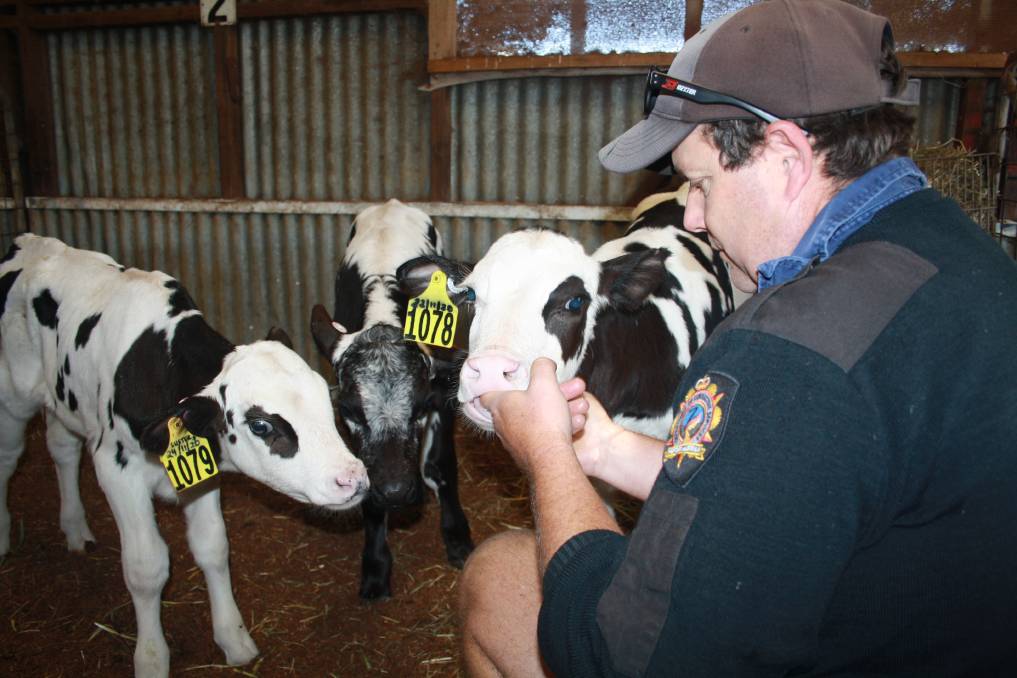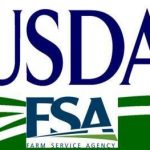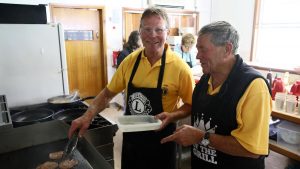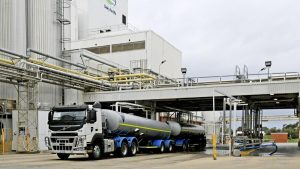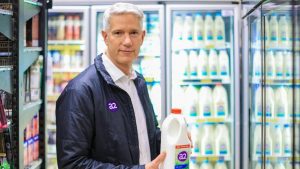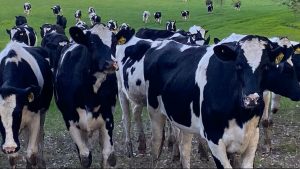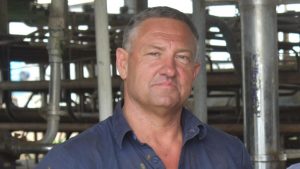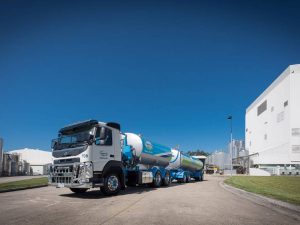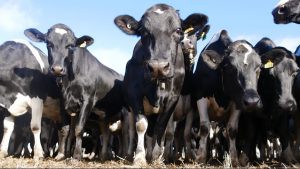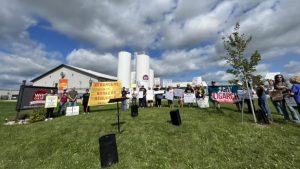
The high security fencing is not there to protect the cow, rather to keep her carers in.
Karnet Mirand 978 is queen of the well-bred and highly productive Karnet Prison Farm dairy herd.
She was recently judged the State winner of the 20th annual Semex-Holstein Australia Onfarm Competition, the largest dairy livestock judging contest in the southern hemisphere which attracts more than 2500 entries nationally.
Karnet Mirand 978 beat 45 entries from 22 farms in the WA section of the competition, which made a return after being cancelled last year due to COVID-19.
It was open to all cows registered or eligible for registration in the Holstein Australia herdbook or appendix and entrants were assessed onfarm, without grooming, on inherent structural correctness using a linear score sheet.
Karnet Prison Farm superintendent Ray Edge said to win the Semex-Holstein Australia Onfarm Competition ahead of the best breeders in the State was a “huge honour” for the prison farm
“Many people would be surprised to know the farm has been running a world-class AI (artificial insemination) program for 10 years, led by our dairy officer Wayne (his surname is not used for security reasons but he is an experienced dairy farmer),” Mr Edge said.
“The quality of the calves, after generations of artificial breeding, is getting better and better.
“There are more than 430 dairy cows on the farm and this years’ calves have been the best.
“Wayne has a strong background in genetics and pays close attention to what’s happening in the field of AI across the world, sourcing highly prized semen from the United States, Canada, Europe and Australia.”
When Karnet Mirand 978 was born, her American-bred, Australian-born, sire Coomboona Zipit Mirand, was the top type polled bull in the world and the prison farm was one of the first two dairies globally to use him.
The competition win capped off a very successful year for the prison farm’s dairy enterprise which produced a record volume of about 2.1 million litres of milk, with average milking rates jumping 10 per cent – a tangible benefit of herd improvement through the AI breeding program.

As a minimum-security facility for male offenders which runs a variety of training programs to facilitate their return to the community after release, Karnet Prison Farm is set on 405 hectares near Serpentine.
It supplies packaged fresh milk daily for the 17 custodial facilities around the State.
Any excess milk is sold to a Byford cheesemaker.
Prisoners who have been risk assessed and approved to work outside of the main fence are employed in dairy, meat, poultry and horticultural production on the farm.
The farm’s primary produce is valued at about $11 million a year – helping offset the cost of the prison system to the taxpayer – from about 375 arable hectares, with about 40ha irrigated over summer.
Apart from helping grow and manage pasture and conserved feed, approved prisoners milk the herd twice a day in a 12-a-side swing-over herringbone dairy set up with automatic cup removers.
The Justice Department is trialling DeLaval’s Evanza milking clusters – they feature rapid-change cartridges rather than traditional rubber liners and are claimed to shorten milking time and improve udder health – in the prison farm’s dairy with very good results so far.
Prisoners are also involved in calf rearing and herd management and pasteurising and packaging the milk.
A new flow pasteuriser was installed in 2018 and can process more than 1070 litres an hour – it heats the milk to more than 75 degrees and chills it instantly to below five degrees.
Currently being installed, a new soft pack machine capable of packaging 3500 litres per hour will supplement two machines which package about 600L/h – the dairy enterprise packages about 31,000L of milk a week.
Prisoners involved are taught food safety programs and HACCP (hazard analysis and critical control points), along with how to maintain quality control from packaging through to transport.
Prisoners who show an interest in the dairy enterprise can study for a Certificate ll in Rural Operations, longer-term prisoners can study for a Certificate III in Rural Operations.
A Justice Department spokesperson said at least 15 former prisoners have been able to gain employment at WA dairies after release from Karnet Prison Farm.
Other former prisoners have also found employment in other agricultural industries, including poultry and egg production and broadacre farming operations, the spokesperson said.
